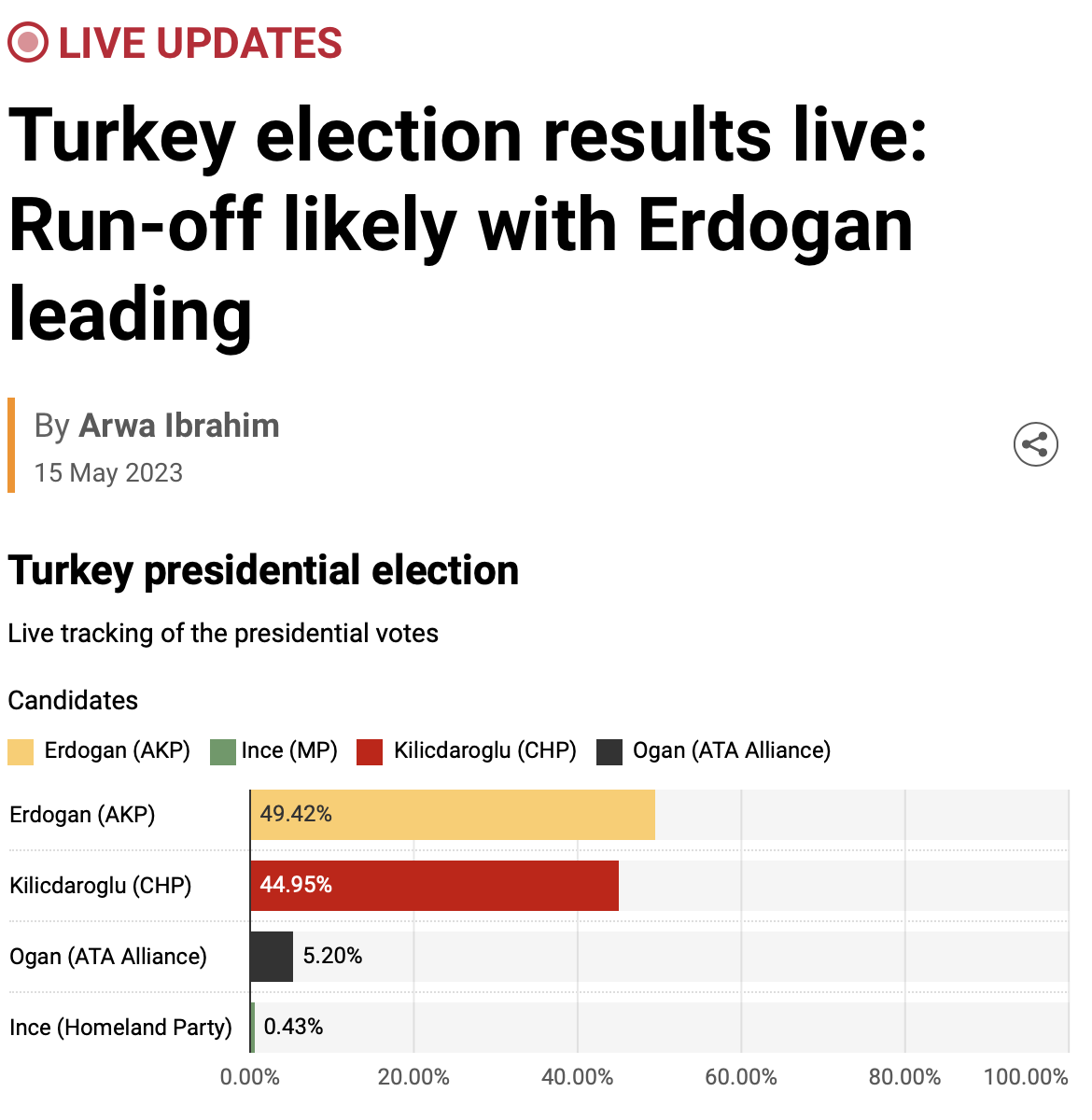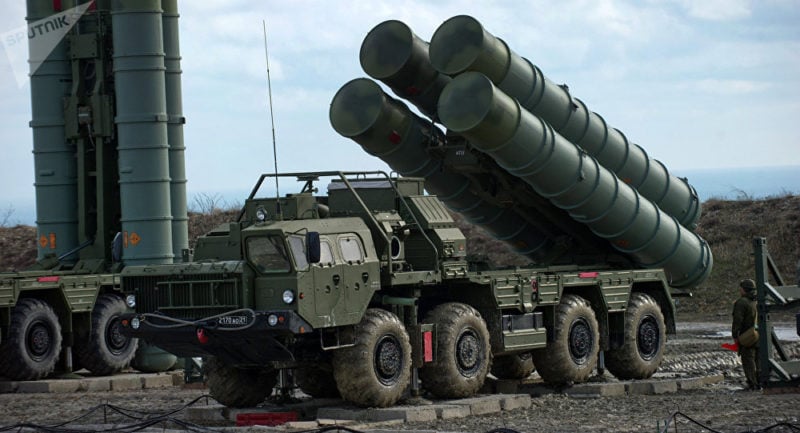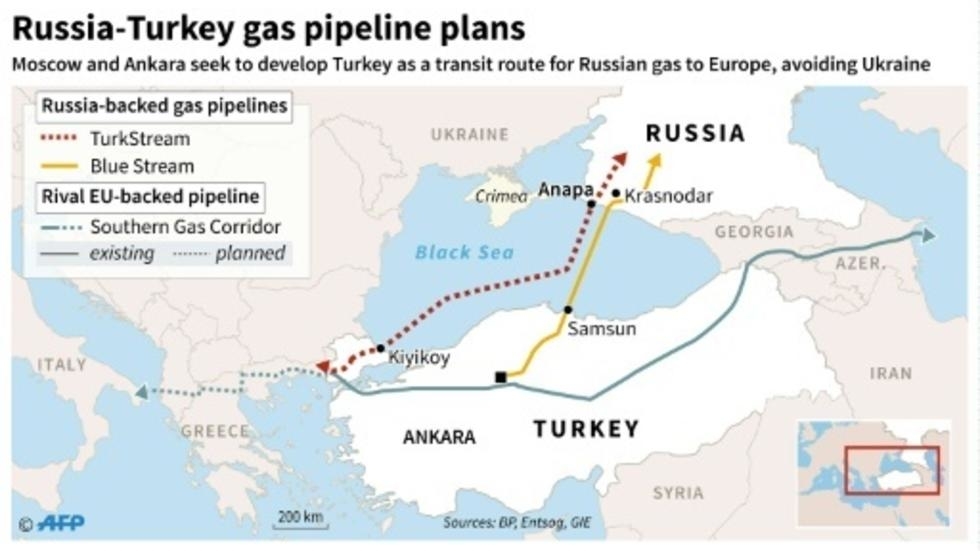Unspoken Divisions within NATO. Turkey is “Sleeping with the Enemy”. Turkey’s Elections, Washington Wants to Get Rid of Erdogan
Part II
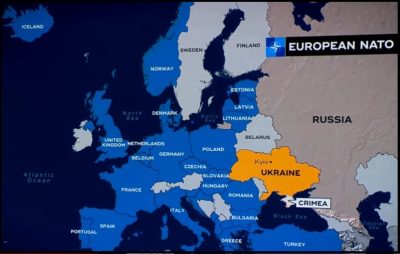
All Global Research articles can be read in 51 languages by activating the Translate Website button below the author’s name (desktop version)
To receive Global Research’s Daily Newsletter (selected articles), click here.
Follow us on Instagram and Twitter and subscribe to our Telegram Channel. Feel free to repost and share widely Global Research articles.
***
First published on February 2, 2023
***
Update: The February Earthquakes, May 14, 2023 Turkey Elections
The economic, social and geopolitical impacts of the February 2023 two earthquakes in Southern Anatolia are far-reaching. They have resulted in economic, social and political chaos in the period leading up to the May 14 presidential and parliamentary elections.
For details see Environmental Modification Techniques (ENMOD) and the Turkey-Syria Earthquake: An Expert Investigation is Required
With regard to the May elections, Washington’s unspoken objective is to: “Replace Erdogan” with an obedient US proxy. No easy task: Their chosen successor to Erdogan is leader of the opposition Kemel Kılıçdaroğlu, who heads a six-party coalition “united by the sole aim of removing Erdoğan from power”.
According to Western media reports, Erdogan’s Justice and Development party (AKP) is poised to suffer losses in the May 14, 2023 elections, which could be followed by a “Color Revolution” resulting in a process of engineered social chaos and mass protests against Erdogan.
Washington’s ultimate objective is to dismantle the Russia-Turkey alliance, while reintegrating Turkey back into the Atlantic Alliance as an “obedient NATO country”, no more “sleeping with the enemy”.
What the media in recent reports have failed to mention is that the outcome of the May 14 election will have far-reaching geopolitical implications.
Washington is intent upon undermining Turkey’s alliance with Russia, as well as taking full control of US-NATO naval access to the Black Sea.
Michel Chossudovsky, May 10, 2023
***
The latest election reports (May 15), point to a run-off. See below.
It should be mentioned that there are reports pointing to the manipulation of election results.
***
Introduction. Turkey is both a “NATO Heavyweight” as well as “An Ally of Russia”
It should be obvious to the White House, the Pentagon not to mention NATO headquarters in Brussels that:
You cannot win a war against Russia when the second largest military power member state of the North Atlantic Treaty Organization is “sleeping with the enemy”
I am referring to Turkey which is both a “NATO heavyweight” as well as a firm ally of the Russian Federation.
The “sleeping with the enemy” narrative –which is the object of this article — has never hit the headlines, nor has it been the object of analysis by the independent media in Turkey’s elections
Turkey abandoned NATO’s Air Defence System in favor of Russia’s “State of the Art” S-400.
“As of 2020, 4 batteries consisting of 36 fire units, and 192+ missiles were delivered to Turkey. Turkey has tested the S-400 air defense system against drones and F-16 fighter jets at low altitudes.”
That acquisition of Russian military technology is part of a concurrent military cooperation agreement as well an alliance between Turkey and Russia established in the immediate aftermath of the failed July 2016 US sponsored coup d’Etat directed against President Recep Tayyip Erdogan.
Needless to say it is a slap in the face for US-NATO, “which you do not want to publicize”.
It is important to address the history of US-Turkey relations and how this shift in military alliances occurred.
History: US-Turkey Military Clash in Northern Syria
From the outset of the war on Syria in mid-March 2011, the Islamist “freedom fighters” were supported, trained and equipped by NATO and Turkey’s High Command. According to Israeli intelligence sources (Debka, August 14, 2011):
NATO headquarters in Brussels and the Turkish high command are meanwhile drawing up plans for their first military step in Syria, which is to arm the rebels with weapons for combating the tanks and helicopters spearheading the Assad regime’s crackdown on dissent. … NATO strategists are thinking more in terms of pouring large quantities of anti-tank and anti-air rockets, mortars and heavy machine guns into the protest centers for beating back the government armored forces. (DEBKAfile, NATO to give rebels anti-tank weapons, August 14, 2011)
In this regard, Turkey played a central role in relation to logistics, weapons supplies, recruitment and training, in close liaison with Washington and Brussels.
This initiative involved a process of organized recruitment of thousands of jihadist “freedom fighters”, reminiscent of the enlistment of Mujahideen to wage the CIA’s jihad (holy war) in the heyday of the Soviet-Afghan war.
The Ankara government also played a strategic role in protecting the movement of jihadist rebels and supplies across its border into Northern Syria.
Also discussed in Brussels and Ankara, our sources report, is a campaign to enlist thousands of Muslim volunteers in Middle East countries and the Muslim world to fight alongside the Syrian rebels. The Turkish army would house these volunteers, train them and secure their passage into Syria. (Debka, emphasis added)
Both Turkey and the US initially collaborated in covertly supporting ISIS-Daesh and Jabhat Al Nusra.
President Recep Tayyip Erdogan, however, had territorial ambitions in Northern Syria which did not meet with US-NATO approval.
They consisted in combating Kurdish YPG separatist forces in Rojava which were supported by Washington.
Rojava is contiguous to the Kurdistan Autonomous region of Iraq, which has been under the control of the U.S. since 1992, in the immediate wake of the Gulf War.
Erdogan’s actions in Northern Syria were considered an encroachment upon Syria’s Autonomous Administration of North and East Syria (Rojava), which in 2015 received extensive air and ground support from the United States and its Middle East allies.
In an unusual twist of events, Washington forcefully accused Erdogan:
“he [Erdogan] continues to supply arms [into Syria] as well, with his ultimate aim [being] to go after the Kurds, and ISIS is secondary.”
This division between the US and Turkey had struck at the very heart of the Atlantic Alliance. Washington was firmly opposed to Erdogan’s territorial ambitions in Northern Syria.
Under Obama, a major campaign against Syria and Iraq in support of ISIS-Daesh was initiated in 2014. The US-NATO objective was intent upon fragmenting both Syria and Iraq as well destabilizing the government of Bashar Al Assad.
In turn, Washington’s strategy in Northern Syria consisted in supporting and controlling the Kurdish YPG separatists against Turkey.
In May 2016, Erdogan retorted, accusing US-NATO of supporting YPG forces:
“The support they give [US, NATO] to… the YPG (militia)… I condemn it,” Turkish President Recep Tayyip Erdogan said… during an airport ceremony in the Kurdish city of Diyarbakir.
“Those who are our friends, who are with us in NATO… cannot, must not send their soldiers to Syria wearing YPG insignia.” (Ara News Network, May 28, 2016)
Failed July 2016 Coup d’Etat against President Erdogan
Less than two months following Erdogan’s May 28, 2016 “refusal to comply”, on July 15, 2016, Turkey was the object of an attempted coup d’Etat:
…[It] was [allegedly] conducted by a faction of the Turkish military [which] bombed government buildings, blocked roads and bridges and attempted to overthrow President Recep Tayyip Erdogan“
What the NPR Report quoted above failed to mention was that the Coup d’Etat consisted in an alleged CIA plan to assassinate President Erdogan:
“…Erdogan accused the CIA of being behind a coup attempt to assassinate him and bring the CIA-controlled networks of exiled Fethullah Gülen into power as Washington had enough of Erdogan’s flips in allegiance. The coup failed and reports were that Russian intelligence intercepts were given Erdogan that saved his life. After that, relations with Moscow improved markedly.
… Then Erdogan began a shift towards Moscow. In 2017, Turkey ignored repeated protests from Washington and NATO and agreed to buy the advanced Russian S-400 air defense missile system, said to be the most advanced in the world. At that same time Russia began construction of the first of two Black Sea gas pipelines to Turkey, TurkStream in October 2016, further distancing Ankara and Washington. (F. William Engdahl, April 2021, emphasis added) (see map below)
Ankara Drifts Towards Moscow
Prior to the July 15, 2016 failed coup d’Etat there was a strained relationship between Russia and Turkey (which had been facilitating the entry of US-NATO warships from the Mediterranean into the Black Sea).
The July 2016 failed coup d’Etat attempt against Erdogan pointed to a major turning point in the structure of political and strategic alliances.
It led to a realignment of alliances almost immediately. Ankara’s evolving relations with Moscow were also coupled with economic cooperation, specifically in the areas of pipelines.
“Our Alliances”: “Sleeping with the Enemy” while “Cooperating with NATO”.
In recent developments, Turkey’s Minister of Defense Hulusi Akar (a former four-star general) candidly stated (Double Speak):
“…[that] Turkey’s role in Nato against criticism that its objections to the Nordic countries’ joint application and its friendly ties with Russia were harming the alliance. “A Nato without Turkey is unthinkable,” Akar said. …
“We are a tested nation, a tried army that would never act contrary to our alliances [note plural]. Turkish fighter jets patrol the skies above the Black Sea for Nato and the government has blocked Russian warships from using its straits during the war in Ukraine. (FT emphasis added)
Hulusi Akar says: “A Nato without Turkey is unthinkable.” I partially concur.
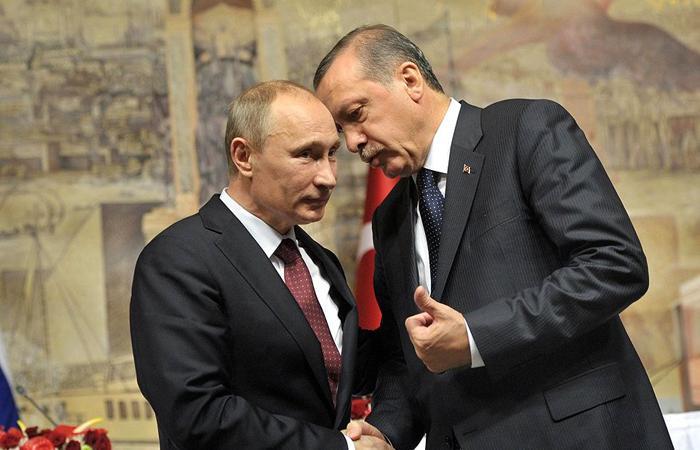 A fractured NATO cannot under any circumstances wage war on Russia when its military heavyweight on the Southern coastline of the Black Sea is “Sleeping with the Enemy”, i.e. collaborating with Moscow coupled with a close personal relationship between Recep Tayyip Erdoğan and Vladimir Putin.
A fractured NATO cannot under any circumstances wage war on Russia when its military heavyweight on the Southern coastline of the Black Sea is “Sleeping with the Enemy”, i.e. collaborating with Moscow coupled with a close personal relationship between Recep Tayyip Erdoğan and Vladimir Putin.
Those Turkish fighter jet patrols are pro forma. They are not directed against Russia.
“Our Alliances” says Hulusi Akar, plural: what does this mean? We are not only allied with US-NATO but also with Russia [paraphrase]. A Non sequitur.
Was Turkey’s initiative to block the accession of Sweden and Finland to the Atlantic Alliance undertaken on behalf of Russia?
Geopolitics of the Black Sea
From a geopolitical standpoint Turkey and Russia presently control the Black Sea (and they are collaborating with regard to commodity trade out of Ukraine).
While Russia controls a large part of the Northern and Eastern coastlines, the entire Southern coastline of the Black Sea as well as access to the Mediterranean under the Montreux Protocol is under Turkey’s jurisdiction.
If we go back in history, the Cold War US-NATO militarization was largely dependent on the strategic role of Turkey against the Soviet Union, with a massive US-NATO buildup in Turkey. That is a foregone era.
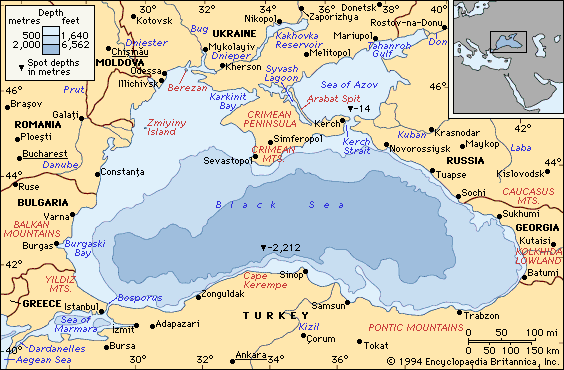
Moscow and Ankara have developed a bilateral and unofficial understanding. Turkey is not deploying its Navy and Air Force in the Black Sea Basin on behalf of US- NATO.
Is “Sleeping with the Enemy” an Avenue Towards Peace?
The March 2022 failed Peace Initiative in Istanbul was hosted by the Erdoğan government in close liaison with the Kremlin. While it was subject to sabotage by both Kiev and US-NATO, it hopefully remains an option.
In recent developments (Early February 2023) Turkey’s President Recep Tayyip Erdogan “has openly criticized the decision by his NATO allies to provide Ukraine with over 300 heavy tanks to prolong the war against Russia.”
“I personally can’t say that sending tanks will resolve this issue… This is a high-risk endeavor and will only line the pockets of gun barons,”
Erdogan confirmed that he “would continue talks with both Russia and Ukraine as part of efforts to find a path to peace”.
What Next: Another US Sponsored Failed Coup d’Etat, Regime Change in Turkey?
Presidential elections in Turkey are scheduled for May 2023:
“With Recep Tayyip Erdoğan at the helm, Turkey is again “the sick man of Europe,” Mr. Erdoğan’s performance has consistently been divisive and dangerous. … Turkey is a member of the North Atlantic Treaty Organization, but it isn’t acting like an ally.” (WSJ),
While there is staunch opposition to Erdogan’s authoritarian rule, the various opposition parties are fragmented, unable to form a meaningful coalition.
The West, signifying US-NATO is committed to intervening in the elections against the “sick man of Europe” who is “sleeping with the enemy”:
Yet there’s a chance he can be stopped, if the West takes bold action to help ensure his domestic opposition gets a fair shake in upcoming presidential elections. To do so, the alliance [NATO] ought to put Ankara’s membership on the chopping block. Considering expulsion now will allow for the alliance to debate the pros and cons of its membership and emphasize—both to Turkish voters and NATO members— … ” (WSJ, emphasis added)
What can we we expect:
Washington’s objective is to destabilize the Erdogan regime (e.g. through color revolution, engineered protest movements, devaluation of the Lira, manipulation of the elections, coup d’Etat?) as a means to reintegrating Turkey as the heavyweight of the Atlantic Alliance and breaking Ankara’s relationship with Moscow.
In substance, another possible coup d’Etat against Erdogan? Triggering social chaos, etc. But will it work?
US-NATO is seeking regime change in Turkey, as a means to regaining control over the Black Sea.
Most of the opposition parties in Turkey are NOT supportive of US-NATO and Turkey’s membership in the Atlantic Alliance.
Will this succeed or will it backlash, leading to broader divisions within the Atlantic Alliance?
There are massive protest movements against NATO throughout the European Union.
While corrupt governments are supportive of US-NATO, anti-war peace movements have spread across Europe.
See Part I of this article entitled:
Ukraine Had Lost the War Before it Even Started
By , January 25, 202
Breaking and Fragmenting NATO is a Pathway to Peace. Massive Protest Movements in the EU
Video
US-NATO is also seeking to promote divisive politics in the Russian Federation as well as a possible “regime change”.
This issue will be examined in a followup article.
 The Globalization of War: America’s “Long War” against Humanity
The Globalization of War: America’s “Long War” against Humanity
Michel Chossudovsky
The “globalization of war” is a hegemonic project. Major military and covert intelligence operations are being undertaken simultaneously in the Middle East, Eastern Europe, sub-Saharan Africa, Central Asia and the Far East. The U.S. military agenda combines both major theater operations as well as covert actions geared towards destabilizing sovereign states.
- ISBN Number: 978-0-9879389-0-9
- Year: 2015
- Product Type: PDF File
Price: $9.40 (sent directly to your email)


